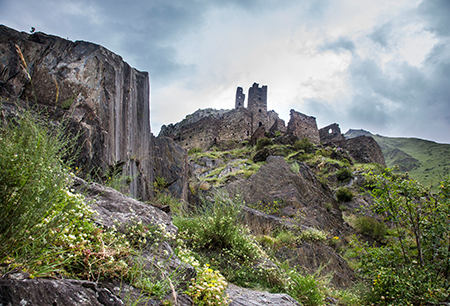New businesses exempt from taxes in new Mountain Law of Georgia

The Government of Georgia is introducing a new law to encourage people to live and work in Georgia’s mountain regions.
The new law – Mountain Law of Georgia – would see mountain communities enjoy greater benefits with the aim of developing Georgia’s mountain regions, said Georgia’s Prime Minister Irakli Garibashvili.
Currently mountain populations leave their homes and migrate to bigger cities to pursue better job opportunities. But the creation of the Mountain Law aimed to curb this.
The current draft law noted the creation of a legal space that would allow the mountain population to rely not only on state aid, but to create their own well-being.
Under the new law, entrepreneurs who establish businesses in the mountain regions, use local resources and employ local residents, will be exempt from taxes for three years. And in the case of re-investment, taxes will be written off for a further three years, noted the draft law.
Garibashvili said experts have been working on developing the draft law for several months. The final version of the project has been already discussed and the Mountain Bill is expected to be completed by the end of February, and then will be sent to Parliament for approval.
The Mountain Law envisaged 50 percent higher salaries and pensions for local residents.
Koba Arabuli, the First Deputy Governor of the Mtskheta-Mtianeti, was involved in the draft law development and said permanent and temporary residence status will be introduced to the mountain population. Permanent residency will be offered to people who spend at least nine months of the year in the mountains while temporary residency will be offered to those who spend at least six months of the year there.
Accordingly, the preferential system for temporary and permanent residents will be different.
Funds towards the cost of developing and implementing the law would be allocated from the state budget, meaning a commission led by the PM will be created to adopt decisions on the most pressing issues and a special department will be established within the Ministry of Regional Development.
A Mountain Agency will be established to monitor the implementation of the law as well.
Arabuli said it was difficult to estimate the costs related to the new law at this stage, as there was "no exact data” on how many people live in the mountains.
The final version of the Mountain Bill will be submitted to the Government in the next few days, and then will be sent to Parliament for approval.
 Tweet
Tweet  Share
Share